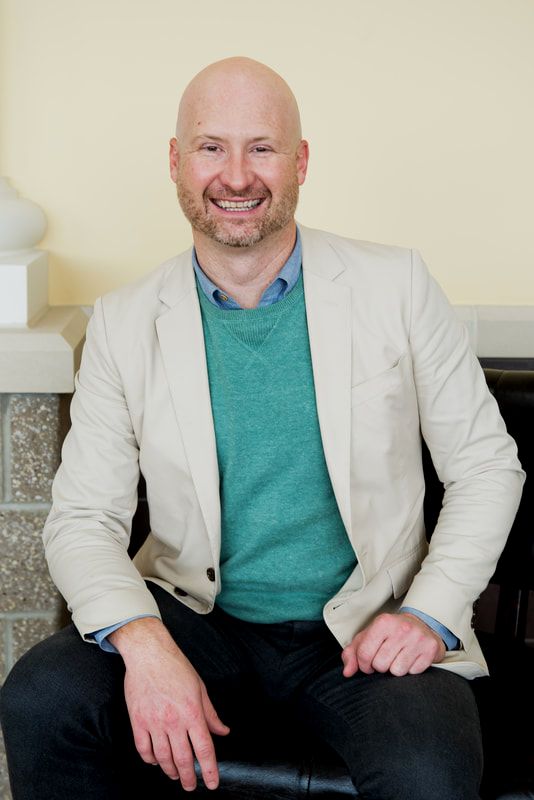|
In April, colleges are preparing students for finals, graduation, and enrollment for the summer and fall semesters. It’s an annual rite of spring that we shift into a higher gear and we build to the crescendo that is May.
As we turn our sights to graduation and spring, the UC typically hosts a career and job fair with PCDA. Over the past three years, this event has grown with the number of jobs and businesses present and the number of students and community members who attend. We are aiming to conduct this annual job and career fair for individuals searching for local gainful employment. One of the biggest challenges here at the UC is creating pathways from degrees to employment for our students. We want our students to find success and a great career fit upon graduating. However, there have been times we witness students experience difficulty in launching their career after graduation. This is a difficult situation our former students find themselves in, and one that I myself had to overcome as I had a “failure to launch,” upon graduation. What I like to remind these students is that in those trying times it’s not the “degree,” that solely defines your college education. It’s the skills, lessons, and achievements you acquired during the pursuit. Perhaps your degree is in a field that is in a current shortage of opportunities, but what’s not in shortage is the skills acquired such as research, collaborating with others, and seeing projects through to completion. When I first graduated I felt I had a solid plan in place for the future. I felt I was prepared and had a great opportunity lined up for myself. But as you can suspect, it was quickly apparent I was not in the place that I felt I was going to thrive. I was back to the drawing board, but I was not alone, I carried with me a work ethic, responsibility, and an attitude of becoming a self-starter and creating a new opportunity. I drew on experiences that shaped me through college and I turned my attention to reflecting on potential opportunities and where I felt I could grow and bring benefit to an organization. Each of these skills were manifested and shaped throughout my college experience at NOC and NWOSU. It wasn’t long before I found my fit and I started with the Ponca City Public schools as a substitute teacher. From there as I began my career, I returned back to school to create more opportunity. I enrolled at the University Center at Ponca City and after a few more years of school had developed more knowledge, passion, and skills to utilize for the future. Today, I remind our students that they may not find their dream job right out of college. But what they will find is a sense of achievement and a plethora of additional skills and life lessons that are not listed on their diploma. Sometimes it’s these skills, attitudes, and abilities that employers find the most benefit from bringing to their organization. I encourage them to take a step back and recognize that while current economic realities may be one way, they’re shaped and equipped to find success in the future.
0 Comments
Welcome to March where we begin to embrace the promise of a swift and warm spring. In March we will recognize the one-year anniversary of the Pandemic in Oklahoma and the forever altering impact it has made on education. It seems like years ago, but the digitization of the workforce, the changing of how we organize, meet, and educate has changed. What’s transpired in the past twelve months is a testament to the dedication and work ethic of our leaders, community, and neighbors.
But where are we one year from the beginning of the pandemic? In Ray Schroeder’s article, “Online Learning to the Rescue,” he notes that higher ed enrollments were down nearly half a million students in the fall across the United States. Where did these students go? For the UC at Ponca City, our enrollment dropped nearly 18% compared to a year ago at this time. Are we concerned? Absolutely, but we’re we surprised? Hardly. Nearly every journal article we read pointed to the Winter months as the time when community spread would most likely see its peak. I was thrilled we could offer services for as long as we did in the fall months. We accounted for this in our planning for the year and will be able to provide the same levels of service in the spring as we had in the fall. What I was not planning on was how one group of students appears to be disproportionately impacted by the pandemic and how this creates a barrier to higher education enrollment. The UC has an enrollment that is predominately female. In my 8 years, the lowest percentage of students we’ve had in a semester that were female was 72%, and most times its over 75%. When you also factor in a large majority (over 60%) of those females have at least one child, and are employed, and we can start to imagine the sacrifice in a typical non-pandemic year it takes for an individual to decide to return to school. The digitization of our schools and moving our young people from classrooms to the living room created a new issue for our community. The UC students were having to decide between going to class or leaving their children at home. It’s not only higher education that’s seeing an exodus of women from seeking their degree, but it is a national workforce problem. In a Bureau of Labor Statistics report from October, data showed women leaving the workforce increased significantly over 2020, with over 865,000 more women than men were leaving the workforce in September alone. The Bureau of Labor Statistics pointed to a sobering fact that in the Fall the United States saw that the number of women in the workforce had fallen to 1988 levels. Sadly, this trend continues today as the pandemic trudges along. What does this mean for our institutions as we move forward? We must innovate to remove these barriers for our female students. One way we’ve looked to this challenge was with the NOC and the UC partnership to offer in person weekend classes. Instead of being gone for multiple days a week, students can enroll in Friday evening classes and Saturday classes, earning their credits over the course of a dozen weekends. In addition, the UC Foundation raised a record number of scholarship funds for 2021 to help lower the financial burden our students face when deciding to enroll in higher education. Digitization of higher education continues to evolve and I believe we will see new ways to deliver a rich and meaningful experience in the coming months. But we must not lose sight of the heroes of the pandemic. I tip my hat to those who have nobly answered the bell, our female students, who are at home helping protect our youth, ensuring their participation in their online learning, and helping drive down our COVID numbers to help us return to a new normal in the near future. |
AuthorAdam Leaming is the third CEO of the University Center at Ponca City. ArchivesCategories |
|
The University Center at Ponca City
2800 N. 14th St.
Ponca City, OK 74601
PH: 580-718-5600
s[email protected]
2800 N. 14th St.
Ponca City, OK 74601
PH: 580-718-5600
s[email protected]
© 2021 UNIVERSITY CENTER AT PONCA CITY
Designed by MyMediaMatters


 RSS Feed
RSS Feed
